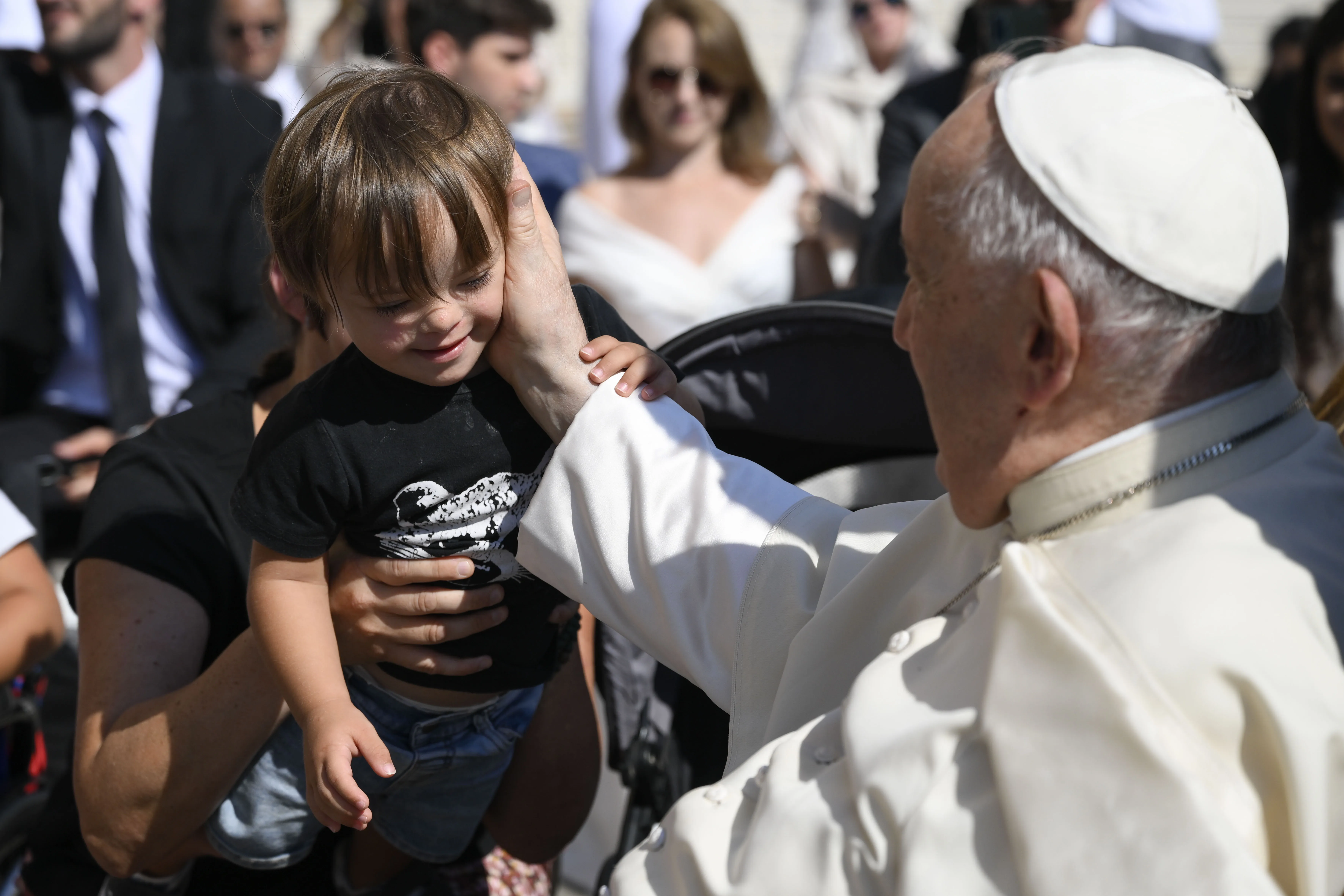 Pope Francis spoke about his recent trip to Mongolia during the general audience in St. Peter’s Square on Sept. 6, 2023. / Vatican Media
Pope Francis spoke about his recent trip to Mongolia during the general audience in St. Peter’s Square on Sept. 6, 2023. / Vatican Media
Vatican City, Sep 6, 2023 / 03:06 am (CNA).
Pope Francis on Wednesday encouraged people to look for the quiet goodness in the world, even when the tendency is to pay more attention to failure and scandal.
“Just think how many hidden seeds of goodness make the garden of the world flourish, while we usually only hear about the sound of falling trees,” he said during his weekly public audience on Sept. 6.
“People, we too like scandal. ‘Look at what barbarity, a tree fell, the noise it made!’ But you don’t see the forest that is growing every day. Because the growth is in silence,” the pope added.
He urged people to look “toward the light of the good” in the world and to fight the tendency to only appreciate others to the extent that they share our ideas.

Francis addressed pilgrims and tourists in St. Peter’s Square two days after his return from a trip to Ulaanbaatar, the capital of Mongolia.
Mongolia, a country sandwiched between China and Russia, is sparsely populated with around 3 million people across nearly 604,000 square miles.
The population, which is historically Buddhist, includes fewer than 1,500 Catholics.
“One might ask: Why did the pope go so far to visit a small flock of the faithful?” Pope Francis said at the general audience. “Because it is precisely there, far from the spotlight, that we often find the signs of the presence of God, who does not look at appearances, but at the heart.”
“The Lord,” he explained, “does not look for the center stage but the simple heart of those who desire him and love him without ostentation, without wanting to tower above others. And I had the grace of meeting, in Mongolia, a humble Church and a joyful Church, which is in the heart of God, and I can testify to their joy of finding themselves also at the center of the Church for a few days.”
The pope recounted what he called the “touching history” of the Christian community in Mongolia.
“It came about, by the grace of God, from apostolic zeal — on which we are reflecting at the moment — of a few missionaries who, impassioned by the Gospel, went about 30 years ago to that country they did not know,” he said.
Francis added that despite the difficulty, the missionaries learned the language and the way of life of the Mongolian people.

He praised the inculturated Catholic community the missionaries formed, saying they did not rely on proselytism to convert people to Christianity but showed how to live the Gospel within the Mongolian culture.
“This is catholicity: an embodied universality, which embraces the good where it is found and serves the people with whom it lives,” he said. “This is how the Church lives: bearing witness to the love of Jesus meekly, with life before words, happy with its true riches — service to the Lord and to brethren.”
Pope Francis was the first pope in history to travel to Mongolia.
During his four days in the large, landlocked Asian country Sept. 1–4, he met with government leaders, engaged in interreligious dialogue with Buddhists and people of other Eastern religions, and presided over the first ever papal Mass for the country’s small Catholic population.
“I was in the heart of Asia, and this did me good. It is good to enter into dialogue with that vast continent, to glean its messages, to know its wisdom, its way of looking at things, to embrace time and space,” Francis said.
“Thinking of the boundless and silent expanses of Mongolia,” he added, “let us be stirred by the need to extend the confines of our gaze, so that we may be able to see the good in others and be capable of broadening our horizons.”
